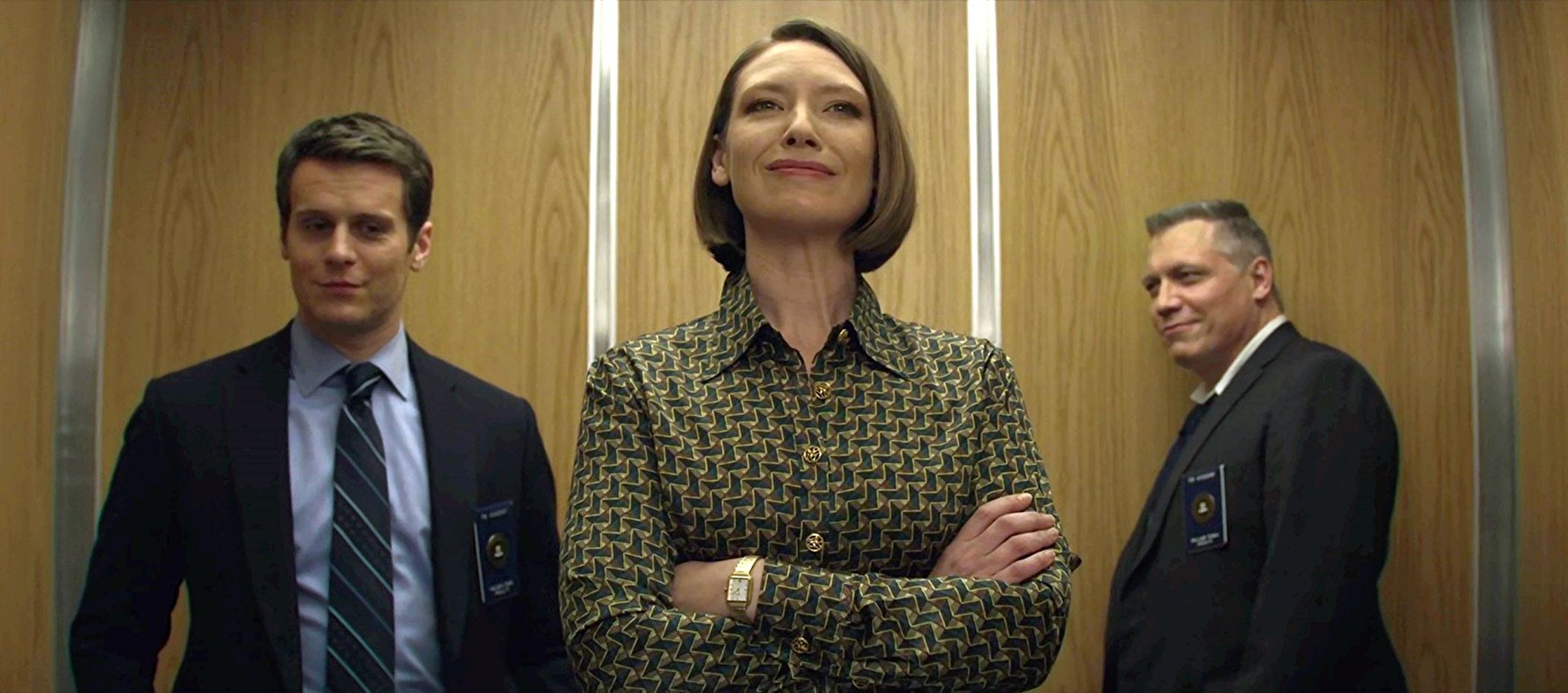In my review for Episode 3, I said that given Holden Ford’s penchant for getting into the minds and confidence of his serial killer subjects, that it was a good thing he was one of the good guys.
As if on cue, Episode 4 has me asking, Is Holden Ford a good guy?
Little things pop out in this episode that make me wonder, and what I interpreted as Holden’s stilted delivery in Episode 1 now seems more like a deliberate choice to separate himself from Bill, the cops they meet, even Dr. Wendy Carr. In this episode, there is a scene when Bill and Holden are eating dinner, right after they’ve had a car accident. Bill is frustrated because his partner could have been killed. Holden is frustrated because Debbie can’t pick them up so they have to stay another night.
“I don’t know why I’m so upset,” Holden says, as convincing as an actor in a middle school production of The Crucible. He says the words, but there are no emotions behind them. It sticks out as so bizarre that I can only conclude that Jonathan Groff did this deliberately. It’s a fascinating decision that I hope will pay off in the future. Not that I want Holden to become a serial killer (that would deviate completely from the story of the man that Holden is based on, for one, and that has its own ethical gray area), but I think Holden is getting more complex than I previously thought. Is Holden turning into someone else before our eyes? Is Bill too distracted to see it? Were we too distracted to see it?
Put a pin on this, because the rest of the episode is pretty interesting, too. In Episode 4, our agents are in Virginia, where they meet Monte Ralph Rissell, who drowned two women and stabbed three women by the time he was 19. While Kemper was an eager participant, Rissell is not. Sam Strike gives Rissell an aggression and playfulness. As he imitates different women, he gives them each a high pitched voice. Rissell’s almost Ed Kemper’s opposite; Kemper was matter of fact about why he hated women, and Rissell lets his anger roil just under the surface. As he described his crimes, he yanked on his chains and the noise made my cat jump.
Bill and Holden also continue working with Dr. Wendy Carr, and Anna Torv gets to sink her teeth into the role a bit more. Dr. Carr is approaching the work they’re doing from a totally different perspective; when Bill and Holden get held up in Altoona, Pennsylvania, investigating a grisly murder, she point blank tells them that solving one murder is not as important or significant as laying an entire foundation for criminal profiling. She isn’t wrong about the long-term implications of their work, but she also didn’t see the put-upon wife of a suspect, the sobbing fiancé, or the confused and frightened mother. This is what Mindhunter does so well – it gives us multiple perspectives and, instead of being conventional and pitting those views against each other, it tells us that all of these perspectives are equally useful and have to be used together to get a better picture.
This unique perspective of hers eventually lands them in hot water with the brass, but when they emerge from it a little scarred but victorious, Dr. Carr breaks into a satisfied smile, and I couldn’t help but cheer in the name of girl power. In this episode, she not only adds to the work they’ve been doing, but also keeps them focused on the bigger picture and gets them much-needed financial support. Dr. Wendy Carr saves the damn day.
I have to admit, I am giving up on the prospect that Debbie will get real personality. It looks like it just won’t happen, which is the one thing that I can see as a failing. For a show that is so focused, this is a strange misstep. For episode 5, I would like the show to mostly stay the course. I like that the show has balanced a “case of the week” with the long game. Now that we know the next season will focus on the Atlanta child murders, it’ll be interesting to see what direction Fincher and Penhall go in, because the case is still being debated more than 30 years later.







